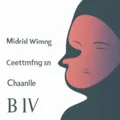Introduction to Meditation
Meditation is a powerful practice that can bring peace, clarity, and balance to your life. Whether you’re looking to reduce stress, improve focus, or enhance your overall well-being, meditation can be a valuable tool. In this beginner’s guide, we will explore 16 essential tips to help you get started on your meditation journey.
1. Understand What Meditation Is
Meditation is the practice of focusing your mind and eliminating distractions to achieve a state of heightened awareness and inner calm. It involves techniques such as mindfulness, breathing exercises, and visualization.
2. Find a Quiet Space
Choose a quiet, comfortable space where you won’t be disturbed. This will help you concentrate and fully immerse yourself in the practice.
3. Set a Regular Schedule
Consistency is key in meditation. Try to meditate at the same time each day, whether it’s in the morning, during lunch breaks, or before bed.
4. Start with Short Sessions
Begin with 5-10 minute sessions and gradually increase the duration as you become more comfortable with the practice.
5. Use Guided Meditations
Guided meditations can be incredibly helpful for beginners. There are many apps and online resources available that offer guided sessions.
6. Focus on Your Breath
Pay attention to your breathing. Inhale deeply through your nose and exhale slowly through your mouth. This can help center your mind and reduce distractions.
7. Practice Mindfulness
Mindfulness involves being fully present in the moment. Notice your thoughts, feelings, and sensations without judgment.
8. Use a Mantra
A mantra is a word or phrase that you repeat to help focus your mind. It can be as simple as the word ‘peace’ or a phrase like ‘I am calm’.
9. Be Patient
Meditation is a skill that takes time to develop. Be patient with yourself and don’t get discouraged if you find it challenging at first.
10. Experiment with Different Techniques
There are many different meditation techniques, such as loving-kindness meditation, body scan, and transcendental meditation. Experiment to find what works best for you.
11. Join a Meditation Group
Joining a meditation group can provide support and encouragement. It can also be a great way to learn from more experienced practitioners.
12. Track Your Progress
Keep a meditation journal to track your progress and reflect on your experiences. This can help you stay motivated and see how far you’ve come.
13. Incorporate Meditation into Daily Activities
You don’t have to be sitting still to meditate. Try incorporating mindfulness into daily activities like walking, eating, or even washing dishes.
14. Use Aromatherapy
Aromatherapy can enhance your meditation experience. Use essential oils like lavender or chamomile to create a calming atmosphere.
15. Stay Consistent
Consistency is important for any new habit. Try to meditate at the same time each day to build a routine.
16. Don’t Strive for Perfection
Remember, meditation is a personal journey. It’s not about achieving perfection but about finding what works for you and enjoying the process.
FAQ
What is the best time to meditate?
The best time to meditate is when you can consistently dedicate time without distractions. Many people find early mornings or late evenings to be ideal.
Do I need any special equipment to meditate?
No special equipment is needed to meditate. However, a comfortable cushion or chair can be helpful.
How long should I meditate as a beginner?
As a beginner, start with 5-10 minute sessions and gradually increase the duration as you become more comfortable.
Can meditation help with stress?
Yes, meditation is known to help reduce stress and promote relaxation by calming the mind and reducing anxiety.
Is it normal to have thoughts during meditation?
Yes, it’s completely normal to have thoughts during meditation. The goal is not to eliminate thoughts but to observe them without attachment and gently bring your focus back to your breath or mantra.









